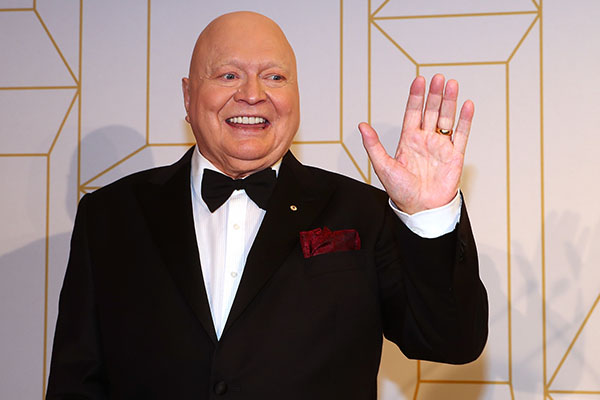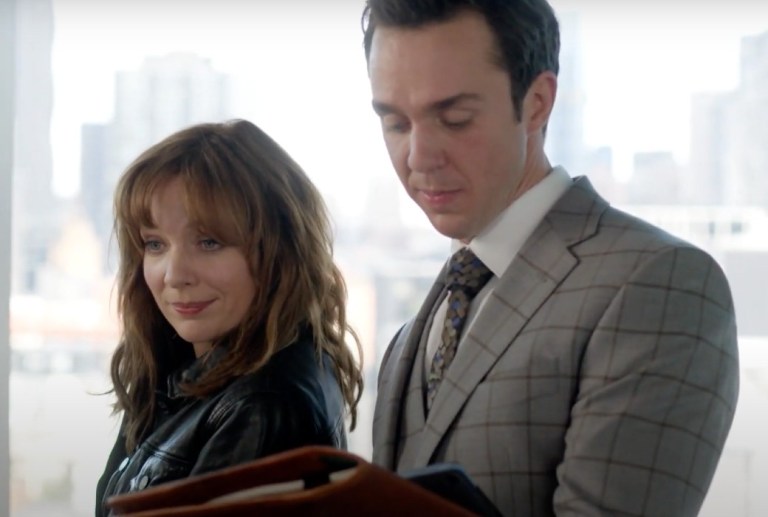Australian Tumbleweeds
Vale Bert Newton
Bert Newton’s death over the weekend has seen a flood of tributes from those who knew and worked with him. He was a popular and much-loved entertainer who made generations of Australians laugh. Whether you remember him from IMT and the early days of television, The Don Lane Show, Good Morning Australia, 20 to 1, stage musicals like Wicked, or the multiple times he hosted the Logies, he’s no doubt a man you remember with great affection. His passing also brings to an end that unique fusion of variety and comedy that dominated the first couple of decades of Australian television. And a style of television that we are unlikely to see again.
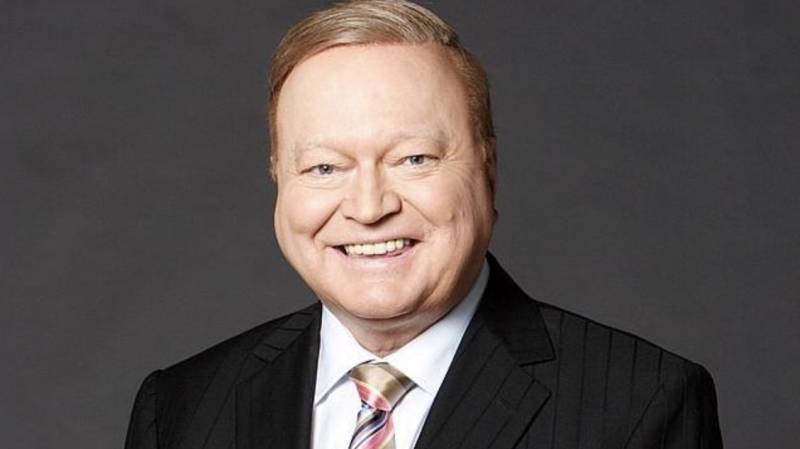
Comedy and entertainment programs these days can sometimes seem over-polished and soulless, but the early years of Australian television were very different. TV was new and irreverent, there was a lot of experimentation, shows were broadcast live and things went wrong all the time. These were the perfect conditions for both seat-of-your-pants thrills and comedy. No wonder the pubs emptied when IMT came on.
In this era, presenters had to be able to handle anything, as the infamous beer skulling clip, popularised by Tony Martin on The Mick Molloy Show, reminds us:
Newton’s ability to cope with anything made him the perfect host of the Logies too. Yes, the show was scripted and glitzy, but it also featured a room of increasingly drunk show business people plus bored (and occasionally stoned) overseas guests. There are heaps of clips going around of classic Bert Logies moments. What they show is how unflappable and quick-witted he was in the face of whatever came at him.
But Bert Newton was also more than happy to allow himself to be the butt of the joke. From the 1970s onwards, he started to lose his hair, leading to running gags on The Don Lane Show about his costly hair replacement surgery. In his later years, he took it one step further, doubling down on his baldness and appearing publicly without his toupe. In the world of show business where looking good is part of the job, this took a certain amount of guts.
Some of what Bert Newton did was of its time, such as appearances in drag or as a grotesque Demis Roussos. But Newton was also someone who moved with the times and encouraged younger generations to follow their own particular comedy star.
Mick Molloy (him again) was welcomed onto Good Morning Australia, despite disrupting it wearing only his Bart Simpson underpants.
Rove McManus described Newton as “a mentor and friend”:
I don’t know that I’m ready to accept this yet. Today I lost a mentor and friend, our country lost an icon, but most importantly a family has lost their hero and soul mate. Sending love to all the Newtons, especially Patti. My heart is broken. Rest In Power, Albert Watson Newton. pic.twitter.com/lzp3AaG51T
— Rove McManus (@Rove) October 30, 2021
And Julian Clary said appearing on Bert’s show was “always a highlight of visiting Australia”.
RIP Bert – going on his show was always a highlight of visiting Australia. I adored him. https://t.co/MfncCtRBys
— Julian Clary (@JulianClary) October 30, 2021
Good Morning Australia, the show Clary is referring to, was a show that could only really have worked for so long with Bert Newton at the helm. Australian television has had countless iterations of the early daytime TV format, where celebrity interviews and musical acts often seem to come second to advertorials about hair removal solutions, but Good Morning Australia was different. Bert was not only great with his showbiz guests – a witty, insightful, and knowledgeable interviewer – but could make the advertorials bearable, sometimes even entertaining.
Bert Newton was a great all-rounder, a man of enormous energy, class, and versatility. In many ways, he was the ultimate Australian television personality: a man who connected with multiple generations and keep them entertained right until the very end.
Don’t You Remember The Days of the Old School Yard
As we reach the tail end of the comedy year, which is a fairly inaccurate way to describe things as the tail end is where the shit comes from and that’s an all year-round situation, it’s hard not to reflect on the 2021 that was. And then hurriedly try to reflect even further back because this year’s Tumbleweed Awards is going to be a shocker.
So here’s a question: what happened to Mark Humphries’ sketches on 730? We don’t mean quality-wise because we’ve always been on the fence there – but weren’t they once a regular thing? When he first turned up on the national broadcaster as the natural replacement for Clarke & Dawe…’s replacement, who was Sammy J only Sammy J was and is still going in the high profile 6.55pm Thursday slot, we’re pretty sure the idea was that he was going to be making regular fortnightly appearances.
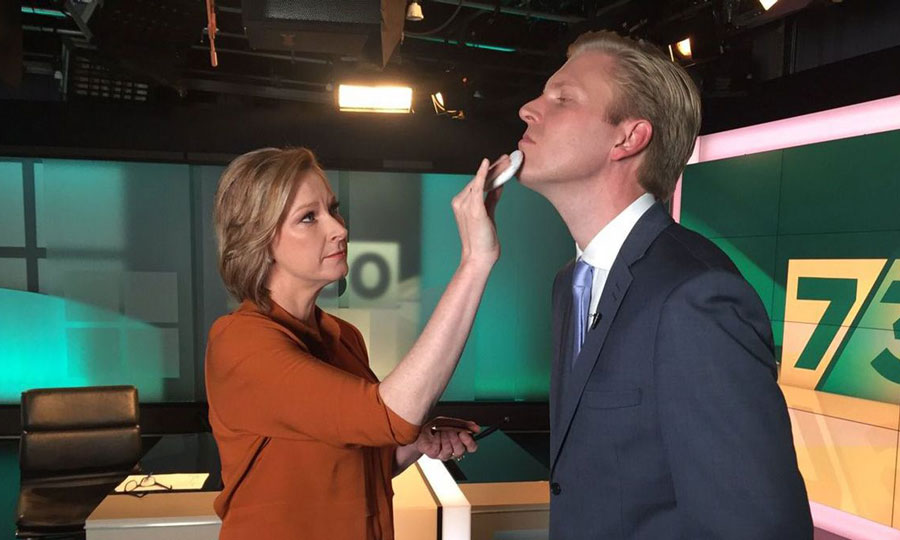
These days things seem to be a lot more hit and miss. Maybe he’s on once a month, maybe it’s more often than that. Looking at his iView page, it’s hard to tell exactly what’s going on. As of today (October 29) it seems like they’ve just republished an episode from two weeks ago; before that there’s two in one month, nothing the next month, and so on.
Yeah yeah yeah, coronavirus, nation in crisis, that weird period on The Weekly where Tom Gleeson couldn’t leave his house so he just wandered around his front garden – a lot of things have been disrupted lately. But on the other hand, Sammy J keeps on turning up week in week out, and he’s got a regular radio show going on as well. When Humphries was doing 730 he had a main gig hosting gameshow Pointless, and that got the chop in 2019; surely he should have more time for satirical tidbits?
Okay, maybe not. He’s a firmly established name now, and the days when his kind of comedy clips “went viral” are firmly in the rear-view mirror; he doesn’t really need this kind of job. What’s annoying is that instead of creating a slot for comedy – wait, we mean “satire” – that they could farm out to other interested parties who do need this kind of exposure, the ABC clearly just grabbed a high profile figure to take advantage of the fame he’d made elsewhere (remember when Humphries was on The Feed?) and when his interest waned / the producers needed that two minutes for updates on stories about how evil Dan Andrews is, they let the slot die.
Getting Humphries on 730 was the rare example of the ABC actually expanding opportunities for local comedy in a time slot where people might actually see it. It’s not like there aren’t other local comedians who’d jump at the chance to make broad and largely ineffectual swipes at obvious political targets for two minutes each week; what has the ABC got to lose? Who knows, they might actually show a clip that has something to say.
The bar for Australian satire is currently so low you have to call up your local power company to make sure you’re not going to damage a gas main when you try to jump over it. Treating satire as something only a handful of previously vetted specialists are allowed to do in public is a big part of the reason why.
Three spreadsheets to the wind
Paramount+’s new sitcom Spreadsheet is one of those shows which assumes that there’ll be laughs -a-plenty if the main character is a zany idiot caught up in madcap situations. Everything’s hectic! Something’s gone wrong! OMG panic! You know the kind of thing.
But what never really works in a sitcom is when a character who’s presented as an idiot would clearly have to be very smart to be in the job they have. Sure, smart people can be absolute idiots sometimes, but there’s a limit to how idiotic you can be and remain in employment. Mind you, Spreadsheet’s main character, Lauren (Katherine Parkinson), who’s a big shot lawyer of some kind, might not remain a big shot lawyer of some kind if she can’t get it together…
Lauren is a divorcee, trying to juggle her career with parenthood and a sex life. And it’s while juggling all three that she runs through a pedestrian crossing and loses her driver’s licence and car. She’s also hopeless with technology, which means that she accidentally sends explicit pictures to colleagues and at the same time posts them to social media. Not to mention that her assistant Alex (Rowan Witt) seems to be spending more time managing Lauren’s spreadsheet of casual hook-ups and dick pics than he does on her helping her win legal cases.
Why he does this is unclear. It’s not the job he’s paid to do, yet somehow, he’s suddenly driving Lauren to work, and her kids to school, and helping her get out of the explicit pictures problem. Nerdy colleague Simon (Ryan Shelton) also gets roped in, on the basis that the pictures are part of a case that’s being prepared. Meanwhile, beady-eyed colleague Ange (Karen Milosevic), fresh from delivering a sexual harassment workshop, receives Lauren’s explicit pictures and starts to get suspicious. Is Lauren about to lose her job, Alex and the spreadsheet?
What’s difficult with Spreadsheet is that it’s clearly intended to be a “you go, sister”-type comedy about a middle-aged woman without sexual hang-ups, yet the plot just reeks of #MeToo. It’s not a plot you could do with a male lead, but it doesn’t necessarily work with a female lead either. Having hook-ups and satisfying your kinks is fine, but dragging your colleagues into it feels really, really wrong, even if they do seem to be weirdly up for it.
As for laughs, there are a few to be found in Spreadsheet, but they’re absolutely nothing to do with Lauren’s oh-so-crazy life. Damian Callinan as dating app liar Felix is about as funny as it gets. And he’s in it for approximately one minute.
Upfront and Downhill
It’s that thrilling time of year when the networks start to talk up their big plans for the year to come. Well, “thrilling” if you’re a big fan of self-funded reality programming; the days when Australia’s commercial networks provided anything more than a series of shabby game shows with a news service attached are firmly in the rear view mirror. As for comedy? Don’t make us laugh.
Seven got in first a few weeks ago with a thrilling 2022 line-up that promised a whole four hours worth of non Home and Away scripted television across the entire year, so fuck those guys.
But doesn’t Seven also have a surprisingly strong line-up on their secondary channels, by which we mean they actually create local programming for them? Good point mysterious stranger. Sadly, two of the series they’ve announced are by Paul “I’m cheap and I deliver” Fenech’s house of shouting:
Housos: The Thong Warrior
From the suburbs to the outback, the cast of Housos are back in a brand-new comedy. Franky is on a mission to stalk and thong slap all forms of authority, with Shazza in hot pursuit (Antichocko Productions).Local Council
The new comedy from Pauly Fenech of Housos, Fat Pizza and Bogan Hunters fame is set in a dodgy council, with dodgy council workers, a dodgy mayor, dodgy developers and dodgy council officials (Antichocko Productions).
So expect more of exactly the same there, up to and possibly including footage he’s already used in previous series. On the upside, there’s also this:
Watch Dogs
A new comedy about two dysfunctional security officers trying to catch a serial offender who is attacking the locals in a beachside suburb (Oldboy Productions).
Well, maybe “upside” isn’t quite the right word, but you know… it could pan out. At least it’s a “new comedy”, and that’s probably the last time we’ll get to put those two words together because it’s time to check out the 2022 upfronts from Ten / Paramount+. Remember how just a few years ago they were all in on local comedy? Now they don’t even have the decency to let us know if Kinne‘s coming back.
As far as established shows go, both Have You Been Paying Attention? and The Cheap Seats have been renewed, so good news for us and people who think like us there. Even better news: the “axe has fallen” on Hughsey We Have a Problem, possibly because Hughsey himself is currently a bit of a problem. No word yet on How to Stay Married, but having seen the fairly final final episode we’re going to guess that’s because nobody in management remembers they made it.
In new programming, we can “look forward to”:
A local version of Would I Lie to You? with team captains Chris Taylor and Frank Woodley.
That sounds like it could possibly go either way so maybe it’s not oh wait we forgot to read the start of the sentence:
Chrissie Swan will host
Yeah, that’s not going to be great.
As for their secondary channels, the streaming only Paramount+ has a reasonable range of programming in 2022 unless you’re a fan of local comedy, in which case you’re, to quote the current Pope, “shit outta luck”.
Slightly more promising news is buried deep in the press release for 10 Shake – yes, an actual network – where the mission statement is “sitcoms, romcoms, stand-up comedy and everything in between” despite the fact that there is literally nothing in between those things. Anyway, we’re told they’re going to be showing:
a heap of Aussie stand up specials [that] will have grown-ups laughing like lunatics.
No idea whether these will be new specials or just more of those Just For Laughs repeats they’re constantly putting on after HYBPA?, but the whole “laughing like lunatics” has us wondering if it’s going to involve some fiendish scheme by The Joker.
Hey, at least that guy knows how to make people laugh.
You Better Prep Yourself Before You Wreck Yourself
Press release time!
The end is nigh! New ABC comedy Preppers premieres next month
Preppers premieres on ABC TV and ABC iview on Wednesday 10 November 9.10pm
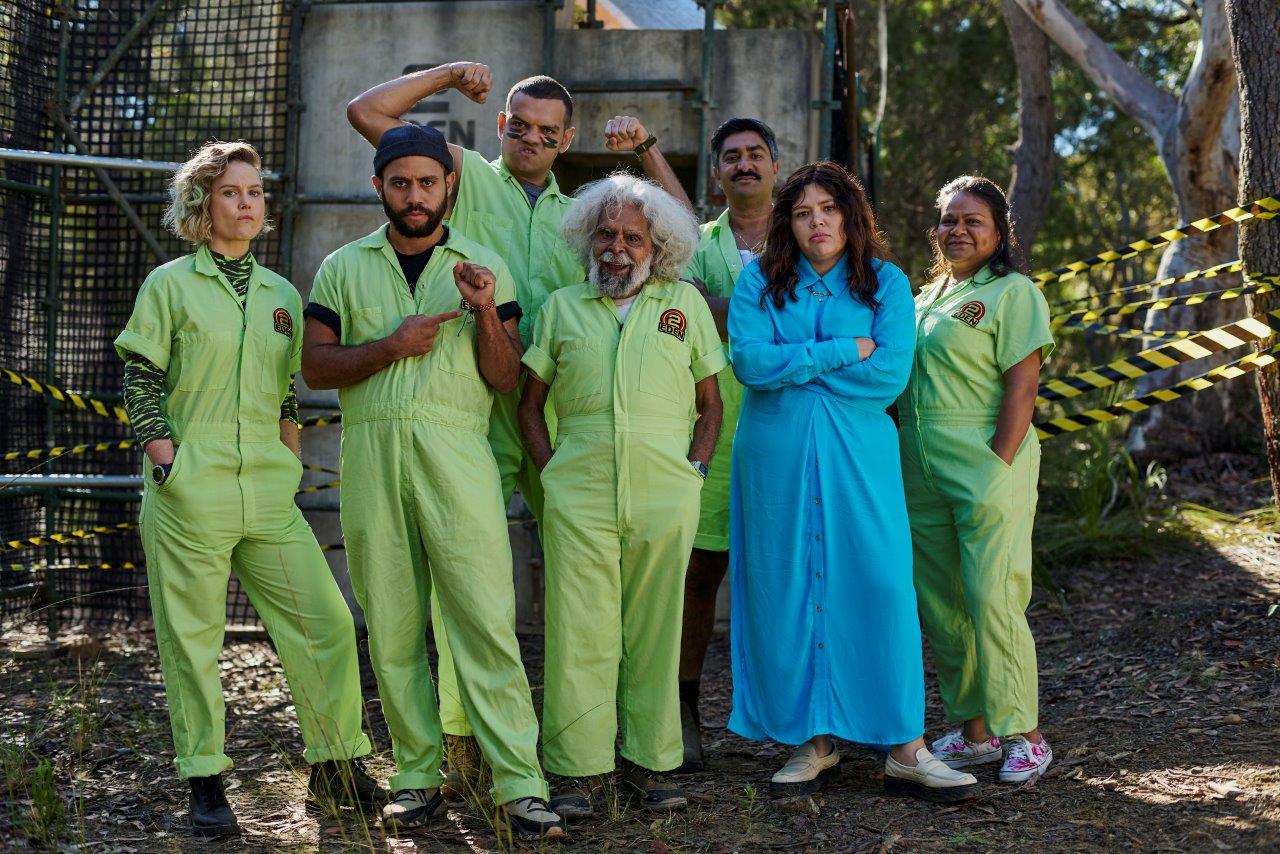
ABC’s new six-part comedy series Preppers launches on ABC TV on Wednesday November 10 at 9.10pm, with all episodes available to binge on ABC iview. Starring the multi-talented Nakkiah Lui, Preppers delves into the crazy world of ‘prepping’ – that is, preparing for the end of days.
Written by Lui and Gabriel Dowrick and directed by Steven McGregor (Black Comedy), Preppers follows Charlie (Nakkiah Lui), a young Aboriginal woman who, after suffering her own personal cataclysmic event, finds herself at the centre of a mismatched community of ‘preppers’ planning for the apocalypse at Eden 2.
Lui and Dowrick said: “We are incredibly excited to share Preppers and look forward to people connecting with our unique take on the subculture of prepping: the unexpected hope and community people create when preparing for the apocalypse. We hope you enjoy bunkering down with our characters as they prepare themselves for the end of the world – whatever that looks like.”
Founded by a wizened old Indigenous man called Monty (Jack Charles), Eden 2 is a refuge for Aboriginal people, and a few suckers that Monty has conned into footing the bill. Doomsday prepping ain’t cheap.
Joining Monty are Lionel (Chum Ehelepola) and Kelly (Ursula Yovich); a relentlessly optimistic, born again religious, mixed-race couple; Kirby (Eryn Jean Norvill), the mysterious host of the conspiracy podcast ‘Agent of Truth’; Guy (Meyne Wyatt), a macho Aboriginal survivalist obsessed with self-image; and Jayden (Aaron McGrath), a woke millennial who sees the apocalypse as the ultimate opportunity for Aboriginal self-determination.
With nowhere else to go, Charlie reluctantly joins the preppers and is eventually won over by the rag-tag bunch of misfits as she tries to come to terms with the dissatisfaction, loneliness and alienation she’s always felt trying to find her place in a White Australia. By gaining a sense of purpose, becoming an unlikely leader and confronting the generational trauma of colonisation, Charlie will ultimately realise that she isn’t as powerless or vulnerable as she thinks. That maybe… just maybe… the end of the world might be her best chance at a new beginning?
We’re staggering towards the end of the year and everything’s starting to look a little tired, but at least this holds out the promise of a few decent laughs. An Australian sitcom with an actual comedy premise? That’s a nice way to wrap up 2021.
Vale Wednesday Night Comedy just in General Really
So Fat Pizza: Back in Business ended on yet another knife-edge cliffhanger that’ll be desperately written out of continuity if the series ever comes back. What, you thought just because Paul Fenech has two series for 7Mate next year that he’d actually wrap this one up?
Housos: The Thong Warrior
From the suburbs to the outback, the cast of Housos are back in a brand-new comedy. Franky is on a mission to stalk and thong slap all forms of authority, with Shazza in hot pursuit (Antichocko Productions).Local Council
The new comedy from Pauly Fenech of Housos, Fat Pizza and Bogan Hunters fame is set in a dodgy council, with dodgy council workers, a dodgy mayor, dodgy developers and dodgy council officials (Antichocko Productions).
We survived Covid for this?
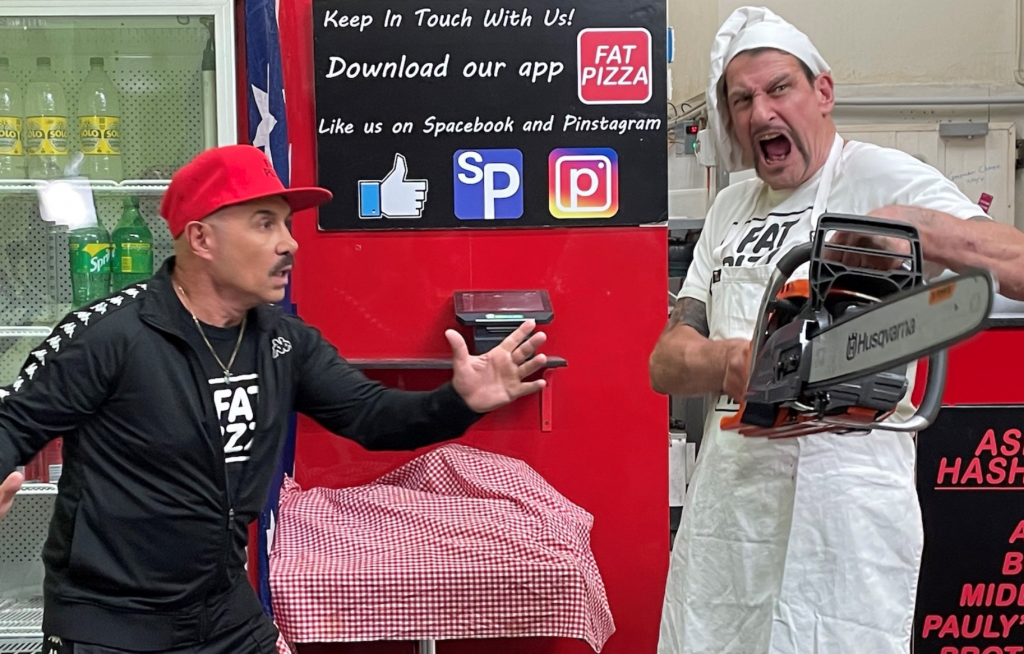
Presumably all the local council stuff in this series of Fat Pizza was a lead-in to Local Councils – though who can be sure of anything these days, as Fenech’s current approach to television seems to involve filming stuff at random then clumping it together into 30 minute chunks.
When he does remember to have a story, such as the recent episode where Pauly had two dates at the same time and yes this is a television program broadcast in 2021 thanks for asking, the results can be mildly amusing. When he just repeats the same scenes over and over and over again, such as every single episode where an angry mob turned up to attack the Fat Pizza store, or every single cutaway to that evil clown in a basement somewhere, it’s shit.
Sure, it’s meant to be a live-action cartoon; we actually did laugh after one fight scene when they cut back to a vacant lot covered in unconscious losers. Yelling “Open the toilet door Hal” to a pizza making robot was… well, reading that line is about as funny as it was to watch. And a Grease-themed musical dream sequence was most definitely a thing that happened.
But without some kind of structure Fat Pizza is just a sketch show where most of the sketches involve yelling, strippers, unconvincing fight scenes and delivering pizza. Free TV shouldn’t cost this much to watch.
*
Last week saw the final episode of Australia’s Sexiest Tradie, a rare Australian sitcom that… well, it’s just rare to see an Australian sitcom these days. But it’s also relatively rare for a local sitcom to set up a dynamic between characters that involves someone being a complete prick to others: even Chris Lilley ended up making Ja’mie a good guy of sorts.
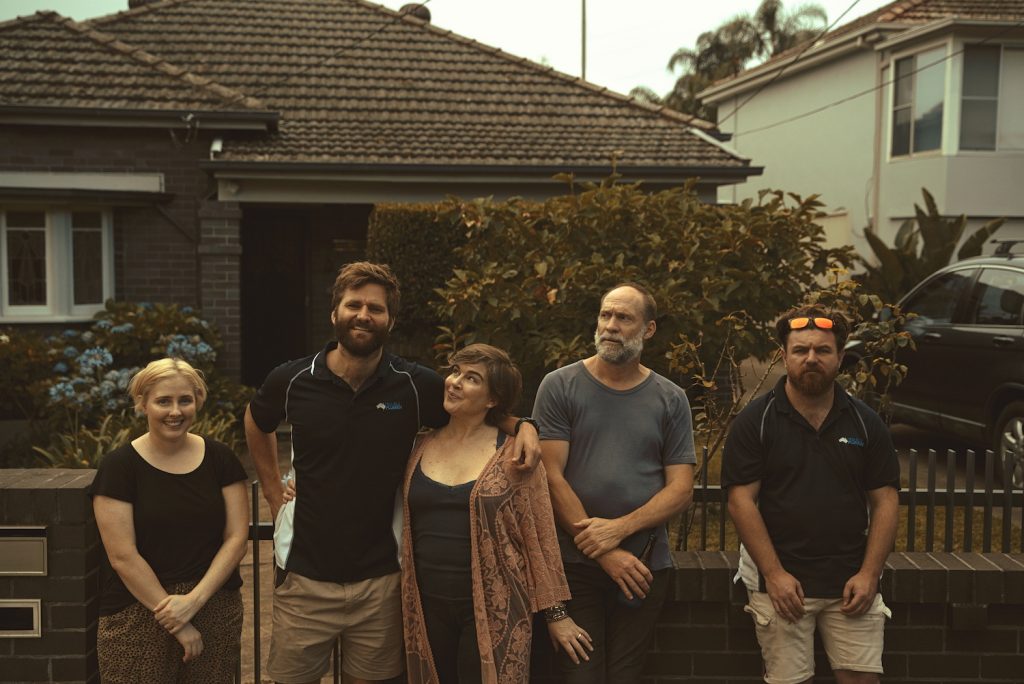
So it wasn’t really a huge surprise that there were a few rough patches throughout the series. But instead of the usual Australian comedy approach of going bland and forgettable, Tradie oversteered, made lead Frankie (Rick Donald) extremely unlikable, gave him a dad who was either borderline abusive or shitting the bed drunk, and created a situation where the only conclusion that could salvage any decent laughs out of things would have to involve at least one murder.
Episode six cranked it all up to a screaming crescendo, with a dead drunk (or possibly just dead) dad, Grub (Jason Perini) making a move on his best mates girl Hammer (Briallen Clarke), some very poor stripping, and an ending that involved Frankie yelling “you never loved me, did ya,” to his dad, which it’s safe to say was not the comedic highpoint of the series.
The big problem here was that the dramatic side of things was just too harsh too often for this series to work as a comedy. The father-son relationship was well-handled; it was also flat-out abusive and almost completely lacking in humour. Likewise Frankie’s dismissive relationship with Hammer and Grub’s constant pining for her was plausible – it just wasn’t much fun to watch.
Most of the scenes and subplots throughout the series were well handled when taken on their own. But we had the unpleasant nature of the characters and their toxic relationships hammered home over and over again when we only really needed a few brief moments to fill in the background. It’s rare we say a show needed more scenes like the classic “taking a shit in a vase”, but this could have used a lot more silly moments and a lot less earnest exploration of a bunch of fuckwit men.
*
Oh yeah, Gruen‘s back. Finally Wil Anderson’s crap jokes can roam free, safe in the knowledge that some random standup from the back blocks six months into their career won’t go one better and make him look like a flailing old man.
We’ve said it all before so really the only thing to point out this week is that one of the many things we’ve said in the past – that the whole “The Pitch” segment is just “do us a comedy sketch for free” – wasn’t exactly disproven with the appearance of The Moth Effect co-creator Jazz Twemlow in this “hilarious” winner:
Here’s our pitch: get Aunty Donna to come up with an “ad” each week and make Gruen a show worth watching.
.
Update: Seems despite what the TV listings said there was another episode of Fat Pizza after the “final” one – well, by “new” we mean the first 1/3rd was recaps using old footage, then there was an extended “dream sequence” using footage shot in America possibly meant to be starring Fenech’s Housos character (slightly different mustache), and then a weird sewer hostage ending that kinda wraps things up but not really and honestly there could be another episode still to come after that, so… the saga continues?
Hey! Hey! They’re back again!
A lot of people still love Hey! Hey! It’s Saturday. Seven wouldn’t have broadcast an almost two-hour tribute to a program made by another network if they didn’t. But it says a lot that last night’s heavily promoted 50th-anniversary show played it extremely safe, keeping the focus on the half-remembered nostalgia of 20+ years ago rather than the reality of what Hey! Hey! was.
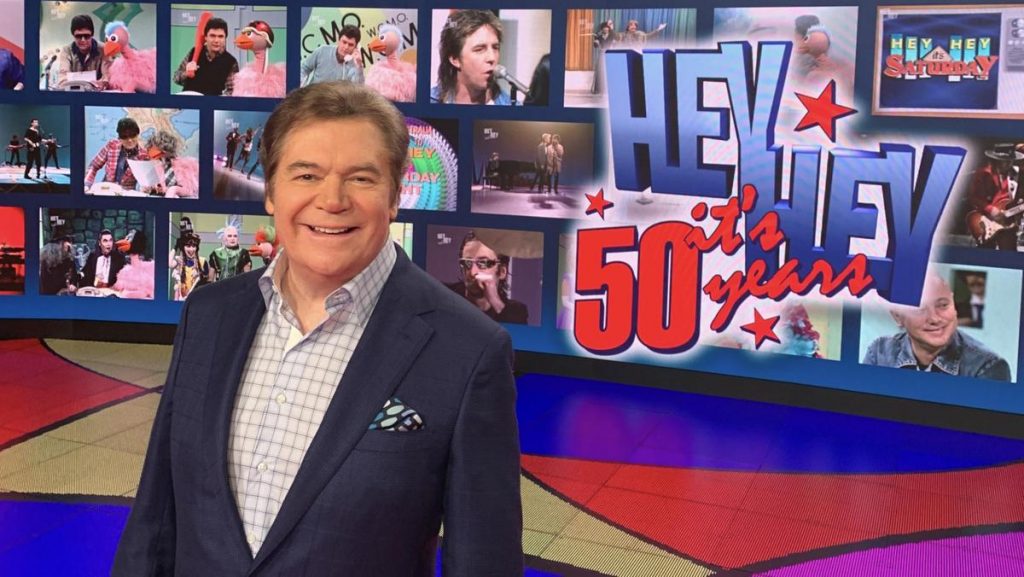
What Hey! Hey! was, was the Baby Boomer’s take on what was funny and entertaining. It was white male-oriented, it was often cruel and by the 1990s young people preferred The Late Show, The Big Gig, Frontline and Martin/Molloy. The audience who’d been important to Hey! Hey! when it’d moved to Saturday nights now had cooler things to watch as young adults. Nine realised this and, rightly, axed it.
The late-noughties revival series, most infamous for the Jackson Jive, just confirmed how right Nine had been ten years previously. Comedy was even more different by this point, with new acts getting their start online, so why would that generation of young people want to watch some show which still reeked of the 1980s? Indeed, why would people who’d loved it in the 1980s want to watch it? They had multi-channels and the internet by then.
Oddly enough, the revival series barely got a mention in Hey! Hey! It’s 50 Years. Even Daryl, who defended the shows at the time, knew that post-Black Lives Matter, the less said about that the better.
What we got instead was a well-packaged and reasonably entertaining reminder of the best of Hey! Hey! It’s Saturday – the big stars, the people who’d do unexpected things, the sort of capers you can only getting with a cast of regulars letting loose on live TV, and the one or two decent acts who appeared on Red Faces.
There were appearances from Kylie Minogue, Daryl Braithwaite, James Morrison, Jo Beth Taylor, Marcia Hines, Marty Fields, Trevor Marmalade, Ross Wilson, Pete Smith, Rhonda Burchmore, Brian Mannix, Elliott Goblet, Wilbur Wilde, Red Symons and Jackie McDonald. Molly Meldrum, John Blackman and the Amazing Jonathan reminded us that they’re still going, despite their various medical problems. Raymond J. Bartholomeuz did a new version of his poem. There were tributes to those who can’t be with us – Ernie Carroll and Russell Gilbert – and footage of Ricky May singing the closing theme song, which he wrote.
It was a decent tribute to a show which, in its day, provided a space for a great variety of musicians and comedians, launched a few careers and gave a lot of people a lot of joy. On the other hand, Daryl Somers kept calling anyone female a “girl”, and no one stopped him. At least we’ll, probably, never see Hey! Hey! on TV ever again.
Bazura Lives!
The Bazura Project, Australia’s longest running sketch comedy program about arthouse film, recently announced they were back after a 10 year absence – in pog(dcast) form. And now you know why we review comedy instead of writing it. Speaking of reviewing, the first episode is available now pretty much everywhere – including their own website – and as it’s free, we gave up 38-odd minutes of our lives to check it out. The verdict?
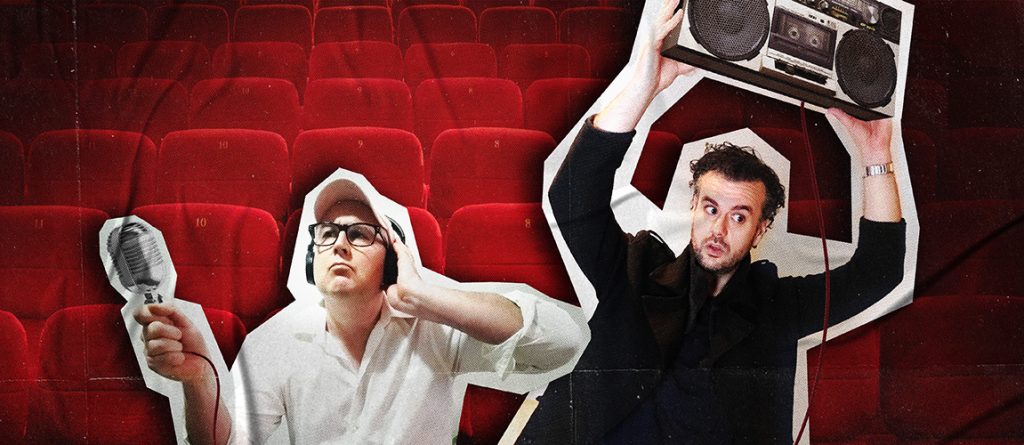
Australian sketch comedy is in a rut so deep it’s turned into a grave. The Bazura Project’s Radio Free Cinema is a reminder that it doesn’t have to be this way. There isn’t a topical political sketch to be found; there’s zero references to the environment, or relationships, or sport. Okay, maybe there’s some celebrities in there, if Russel Crowe still counts.
What you do get is movie jokes and lots of them. Obscure references, obvious references, references to films they just made up – they’re all here. The opening radio news break sets the scene: this is a world where film reigns supreme, right down to the traffic report covering the queues at local cinemas. Grumps complaining that the arts should get as much news coverage as sport, this one’s for you.
Episode one (and presumably the ones to come) is formatted like a radio show. Like all good sketch shows, the sketches are a mix of pre-recorded bits (fake trailers and the like) and live (well, “live”) segments. The longer sketches usually take the form of fake interviews (or in one case, a fake prank call) involving hosts and writers Lee Zachariah and Shannon Marinko. The pre-release publicity promised a bevvy of stars, and there are a lot of guest voices here; any sketch show with Pete Smith involved is clearly doing something right.
(probably the biggest one-off laugh in the first episode comes from a very obvious cameo we won’t spoil here)
Those used to having podcasts droning away in the background while doing the dishes may struggle here. It requires your full attention and then some; there’s a lot going on and some of the best jokes may take a second or two to sink in. A passing knowledge of the golden age of cinema wouldn’t hurt either. It’d be nice to think Casablanca jokes are still mainstream but hey, we’ve seen Fat Pizza.
Even Bad Boy Bubby: The Musical requires you to remember Bad Boy Bubby, a film that is currently (checks IMDB), five years older than Lil Nas X. And that’s a situation we don’t expect to change any time soon. Is it right that jokes about Bad Boy Bubby are “niche” while references to Lil Nas X are “topical”? Hey, we don’t make the rules.
Comedy is where you find it. Fans of tropical references will find commercial radio DJs have that covered for at least seven minutes across each hour. Fans of jokes that are funny? The link’s in the first paragraph.
Vale Question Everything
And once again we say goodbye to a series nobody asked for. Usually when the ABC serves up yet another head-scratcher there’s some kind of demented logic behind it – and by “demented logic” we mean “external funding body”. But every now and again there’s a show like Question Everything, some utterly pointless slab of “topical” yammering that seems to exist solely to confirm all the cliches about the national broadcaster disappearing up its own arse.
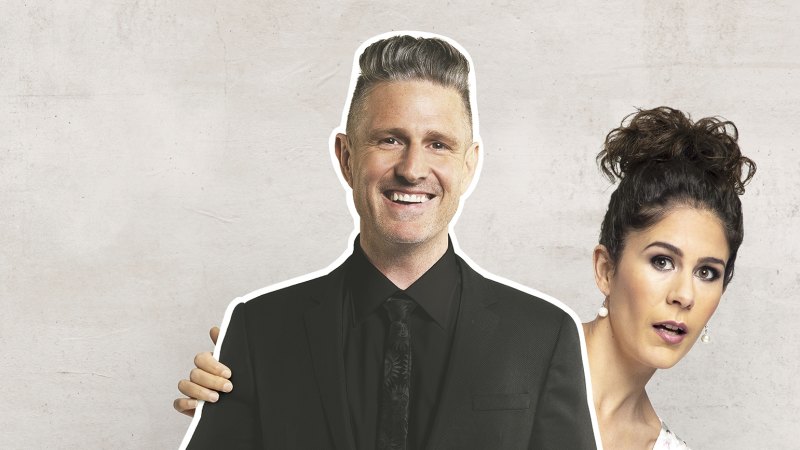
“It’s like Gruen, only with the news” might sound like a reasonable idea – good work series creator Wil Anderson – until you realise that while the point of advertising (Gruen‘s natural home) is to flat out lie to people, the news is meant to tell the truth.
Everyone knows advertising is a house of lies, so getting experts on to expose their rivals’ lies is no big deal. Unfortunately, journalists will defend to the death the idea that they and their co-workers are objective even when they work for Rupert Murdoch. They’re a lot less likely to come on a show and say “yeah, that guy’s full of shit” even if that would be a really good series.
So instead Question Everything featured comedians talking about the news, which meant it was yet another “news comedy” panel show. These don’t have to suck; you just need Working Dog to produce them. You also need to have at least some idea of what “the news” actually is. That way you don’t end up with a show staggering from covering deep fakes to blood supermoons to psychics making predictions back in 2019. These weren’t even things that were on the news; why not ask “what is the deal with mobile phones?” while you’re at it.
Pretty much all news comedies involve a percentage of pre-written gags. Comedians are funny, but they’re not off-the-cuff funny about the news a dozen times in half an hour. But with a show like Question Everything, where the point is supposedly that we’re exploring the manufactured world behind the news, having clearly manufactured comments makes the whole exercise seem bogus.
It’s not quite as simple as either get in real experts to have a real discussion about fake and biased news (which would be Media Watch), or make a scripted comedy show about the news, but… yeah, actually it is. Either be honestly and interestingly informative (which Gruen occasionally is), or commit to being funny (which the Working Dog news comedies are). Choosing to be neither is just wasting everyone’s time.
Question Everything wasn’t a total car crash on a micro level, thanks to a quirky selection of guests (Aaron Chen!) entirely forced on it by Covid and complained about by Anderson.
Wil Anderson was talking to Tim Blackwell and Kate Ritchie on Nova this morning. He mentioned how difficult it has been to even get the show to air. He said they had a lot of high profile comedians lined up to as guests on the show but due to Sydney lockdowns they were unable to appear. So that’s why the replacement ones that have appeared are quite obscure.
Anderson should have been thanking the current deadly pandemic for injecting what little life there was into his show. Imagine the utterly bog-standard ABC approved “high profile comedians” they had lined up to smirk and gurn at every one of Anderson’s dad jokes. Imagine Anderson’s increasingly off-putting death wheeze laugh deflating for minutes at a time as the usual suspects rocked back and forth in their chairs at yet another shithouse ineffectual zinger about a politician. The guests may not have been the best, but they were the best thing about Question Everything.
Otherwise this was nothing more than yet another doomed attempt by the ABC to combine news coverage with comedy, only without actually covering any real news and with no real comedy. Here’s a question Question Everything left unanswered: why do they keep making shows like this, and why are they all the same?
After all, this was basically a replacement for the Covid-stifled return of Tomorrow Tonight, another news panel show with a two word title hosted by a mid-forties white male comedy host (Charlie Pickering) and a bubbly ABC news presenter (Annabel Crabb) where topical issues are given a “comedy” spin as requested by absolutely nobody.
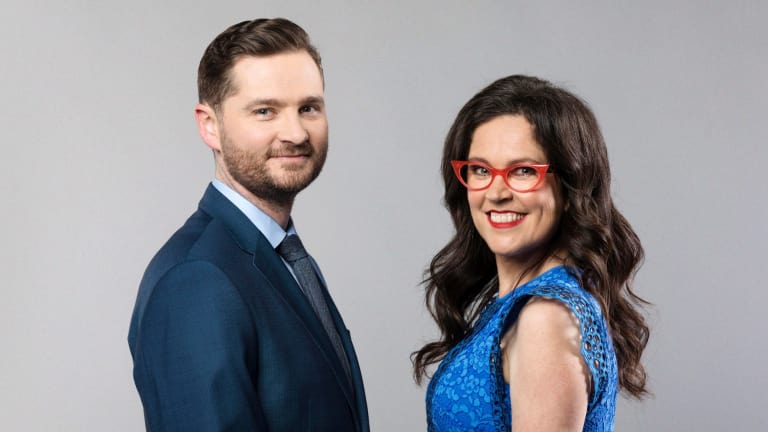
What’s the definition of insanity again? Oh right: tuning in to watch an ABC panel show. Gruen‘s back next week!
Still Frayed
It’s rare for us to celebrate the return of a show, so hooray for the new series of Frayed! In this second outing of Sarah Kendall’s dramedy, we find Sammy (Kendall), Lenny (Frazer Hadfield) and Tess Cooper (Maggie Ireland-Jones) back in London, desperately missing Newcastle despite having flashbacks to what happened with former next-door neighbour Terry.
Series one ended with Terry (Christopher Stollery), a violent misogynist cop who beat up his rebellious daughter Abby (Alexandra Jensen), accidentally shot by Lenny. Months later but still in shock, the Coopers are now struggling to make the best of things in one of London’s less salubrious areas. As Sammy tries to get back the mansion stolen from them by dodgy lawyer Rufus (Robert Webb), rats scurry around their mouldy rented tenement, with only Legal Aid lawyer Hannah (Gemma Whelan) offering them any kind of hope of redemption.
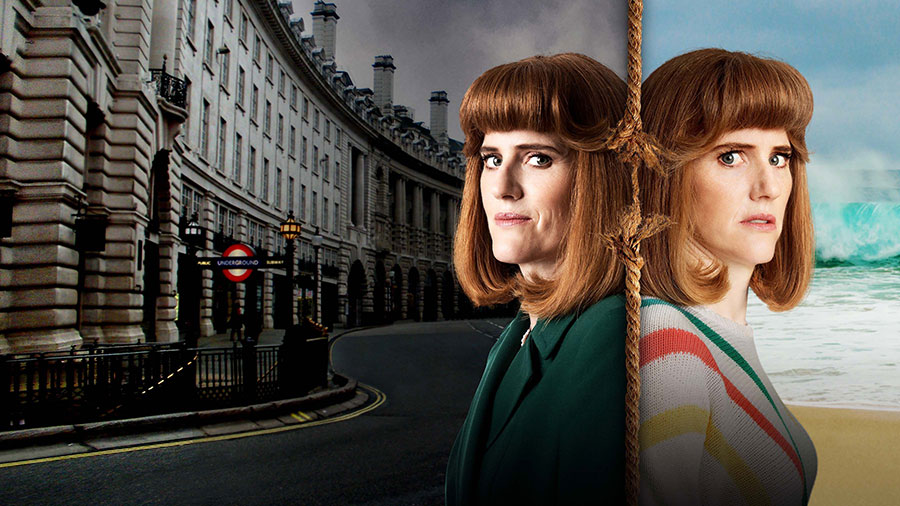
Meanwhile, back in Newcastle, Sergeant Fairbank (Hamish Michael), brought in from Melbourne to find out what happened to Terry, takes an interest in Terry’s next-door neighbours Jean (Kerry Armstrong) and Jim (Ben Mingay), Sammy’s mother and brother. Will Fairbank be able to connect the Coopers to Terry’s disappearance? Will this cause problems back in London? And what’s the deal with the disappearance of Sammy’s Dad 20 years ago?
Frayed, unusually for an Australian dramedy, has a genuinely compelling and suspenseful plot, lots of funny lines, and well-written, complex characters. Even bit parts like the dodgy man at the Legal Aid office with the pet pigeons feel like real people rather than cutaway gags or background colour. The scripts are thoughtful, witty and well-honed, and the ensemble cast, which includes of some of the best characters actors from Australia and the UK, do a brilliant job of bringing it to life.
This is a show borne of Sarah Kendall’s life lived in two countries, and in this show, she pokes fun at both nations with great love and affection. Frayed is at once a love letter to family, an exorcising of demons and pure fiction, but so well-grounded in reality, that almost anyone can relate to it.

